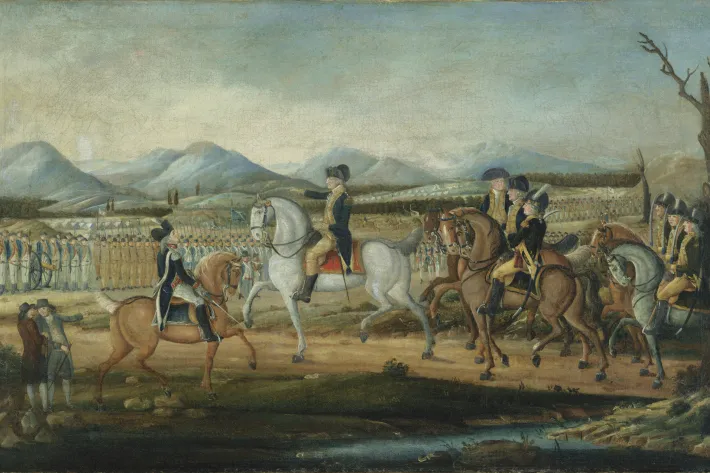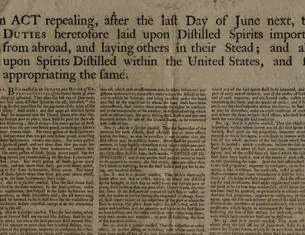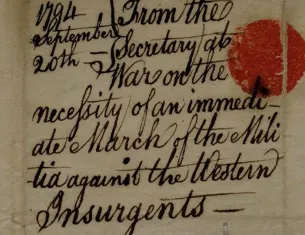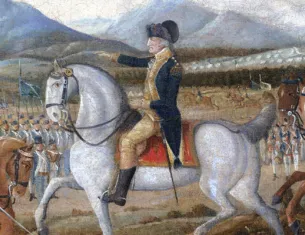Whiskey Rebellion, 1794

“Washington Reviewing the Western Army at Fort Cumberland, Maryland,” attributed to Frederick Kemmelmeyer, 1795 (Metropolitan Museum of Art)
In 1791, the federal government levied an excise tax on distilled spirits proposed by Alexander Hamilton. Cash-poor frontier farmers in western Pennsylvania relied on whiskey as a commodity and even a form of currency. They protested in a series of armed confrontations and crowd actions to prevent local authorities from collecting the tax. The insurrection came to a climax in July 1794 when an armed local militia attacked a tax collector’s home in a two-day skirmish that came to be known as the Battle of Bower Hill. President Washington demonstrated the ability of the federal government to enforce the law by leading military forces to suppress the rebellion.


